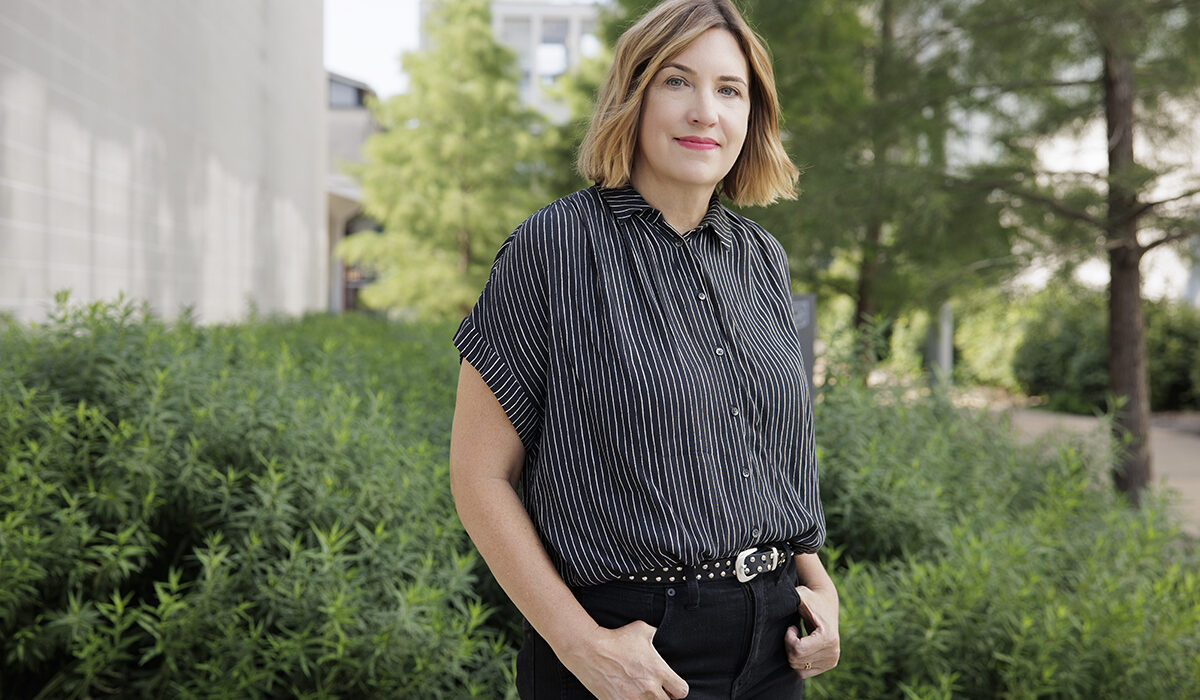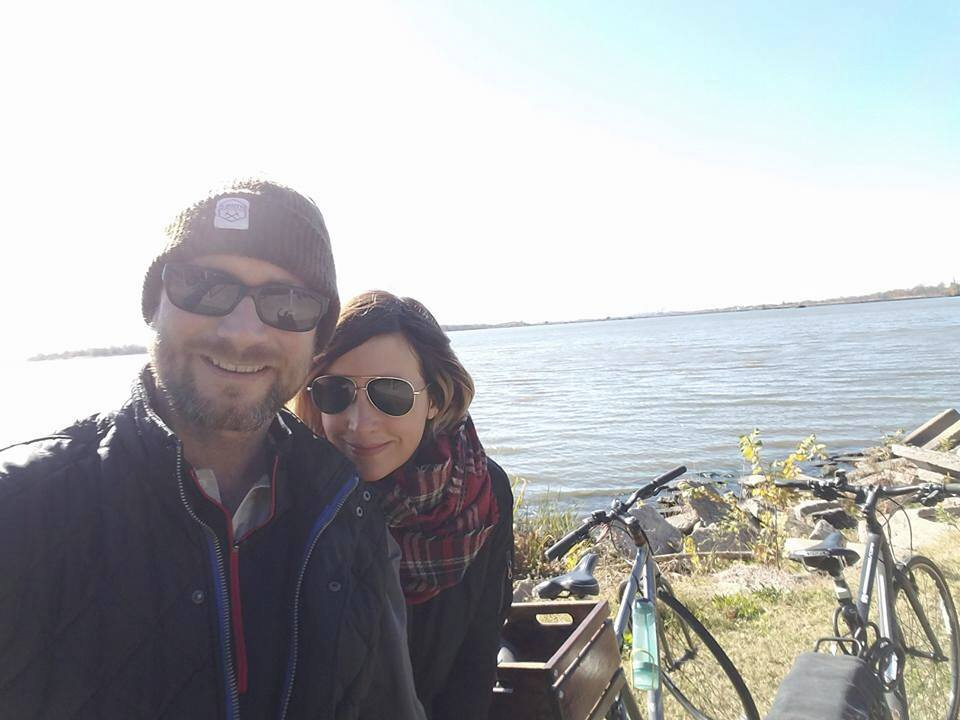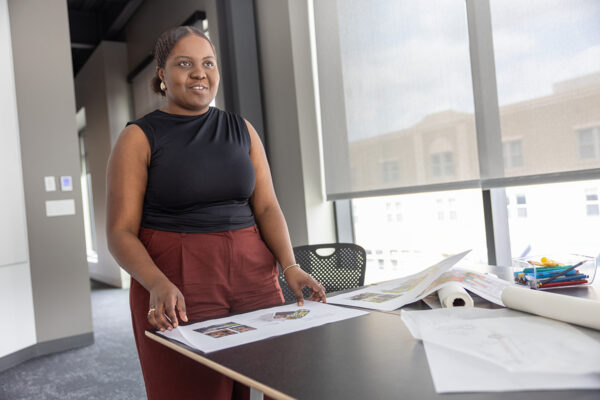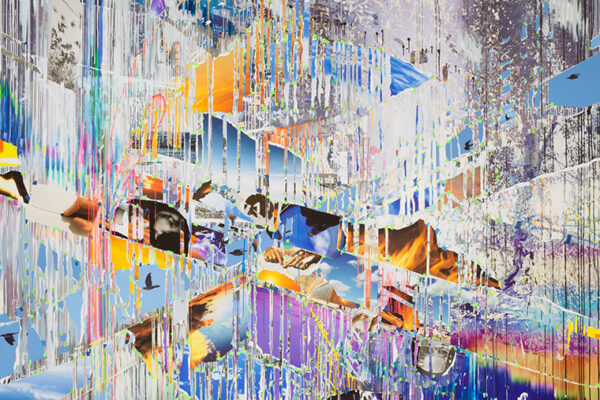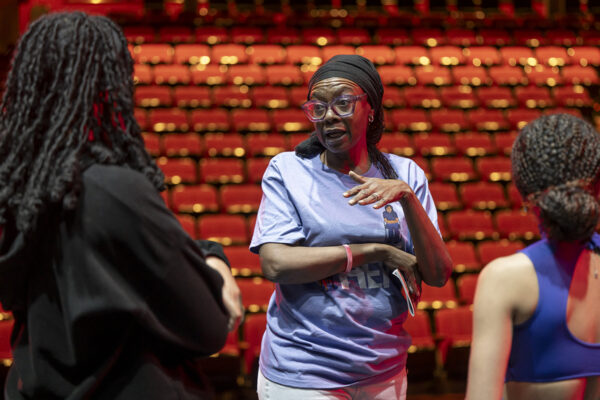To pay her way through Northwestern University, Betha Whitlow, now the curator of visual resources and a lecturer in art history in Arts & Sciences, worked as a bartender, babysitter, tutor and front-desk clerk.
Now, as director of the Digital Art History Lab (DAHL) at Washington University in St. Louis, Whitlow is committed to providing work experiences for her students that are fruitful as well as fairly compensated. She wants the same for her WashU colleagues. When she served on the Danforth Staff Council, she successfully advocated for parental leave.
“One of the things I love about working in the art history department is that my own professional development is a small but meaningful part of my job description, which is highly unusual for staff members,” Whitlow said. “I’ve always encouraged other staff members to advocate for opportunities to learn and grow and have strived to provide student workers a fulfilling work experience that equips them with marketable skills.”
Growing up in a small town in east-central Illinois, Whitlow never imagined she would end up at a top university like Northwestern. However, her father, an English professor at Eastern Illinois University, and her peers inspired her to reach for greater heights.
“When you go to school in a small town, people tend not to dream big,” Whitlow said. “It was a huge deal if someone went to the University of Illinois. However, I ended up in this really unusual class of high-achieving students, and we pushed each other a lot.”
After earning her undergraduate degree, Whitlow moved to St. Louis, picking up work as a substitute teacher in the Clayton and Ladue school districts and as a part-time curatorial researcher at the Saint Louis Art Museum.
She decided to continue her education at WashU for two reasons. One: The opportunity to study with Angela Miller, a professor of art history and archaeology and a leading scholar in American art and visual cultures. And two: the funding.
“WashU really came through for me, and I got a full fellowship, which, for an MA student, was really unusual,” said Whitlow, who earned her master’s in art history and archaeology in 1995.
Whitlow stayed on at the university as a slide curator, i.e. the person to whom art history professors would come when they needed images of famous artworks for their lectures. Whitlow loved the job so much that she made it obsolete.
“There was this huge demand for visual resources in the classroom, and I realized it just made sense to digitize these assets so everyone had access,” Whitlow explained.
This work eventually blossomed into the current state of the DAHL, officially established in 2021.
The DAHL provides students with digital humanities training and faculty with technical services. It also leads the Department of Art History and Archaeology’s outreach efforts and hosts workshops, including “for student, by student” programs that teach students how to create digital visualizations, maps, timelines and reconstructions and other visual assets.
“Last year, we had two students in the DAHL who both have excellent technology skills, but also a real understanding of how to apply them in humanistic research contexts,” Whitlow said. “We had them develop workshops on their own and teach them to other students. It’s important to me to understand my students’ talents, and also to remember that, in certain contexts, students may be more comfortable learning from other students and not a faculty member.”
For the workers that make up the staff, the DAHL serves as valuable professional experience, a steady flow of income and a community of friends. To Whitlow, the most critical aspect of managing the DAHL is meeting her students where they are.
“I consider myself not just a manager, but also a teammate, and it’s my job to cheerlead the team along,” Whitlow said. “I wish I’d been managed that way, and a lot of how I manage people now is informed by some of the more negative management experiences that I had when I was younger.”
Whitlow has been awarded both the WashU Unsung Hero and WashU Graduate Student Senate Outstanding Staff Award, both of which honor staff members for their contributions on campus and engagement with students. For Whitlow, engaging with students as both a supervisor and teacher in her digital humanities course “The Digital Art Historian” offers a refreshing perspective on her work.
“Undergraduate students are very fearless about new approaches, especially to the digital humanities,” Whitlow said. “It reminds me to think outside the box especially as I no longer have a beginner’s mind.”
Bristol Hough, AB ’24 and an alumna of the Digital Art History Lab, said she and Whitlow initially bonded over their shared backgrounds as lower-income students from the Midwest studying at a highly regarded private university.
Hough, who now works in philanthropy, said Whitlow helped her find her initial job after college and served as a reference for her. Hough continues to see Whitlow, going hiking or having dinner together, and credits her as a key person she goes to for advice.
“It’s so important for students to have adult mentors that are neutral, so not your parents or people grading your essays,” Hough said. “For me, Betha is that person. No matter what I’m going through, whether it’s a job change, finding an apartment, navigating relationships, or even traveling, she’s always someone I can go to for advice. It’s clear she really cares about me and my success: personally, professionally and academically.”
‘No one is a stranger’
Whitlow’s colleagues admire her for the same reasons. During her tenures as chair and co-chair of the Danforth Staff Council, Whitlow championed maternity, paternity and caregiver leave for staff, to develop one of the most progressive leave policies of any academic institution in the nation.
“When I joined the Staff Council, there was a maternity leave policy for faculty and graduate students, but not one for staff members, who were instead expected to use a combination of vacation and sick time to have a baby,” Whitlow said. “In advocating for a staff maternity leave policy, we also took our efforts a step further to recognize the needs of many types of caregivers.”
Trevor Bilhorn, who works on curriculum and registration in the MyDay system for the McKelvey School of Engineering, worked with Whitlow on the Staff Council as co-chair when she was chair and vice versa. He said Whitlow was particularly fit to serve in a leadership role on the Staff Council.
“I have the utmost respect for Betha. She’s warm. To her, no one is a stranger. She finds commonalities and common interests and is such an excellent communicator,” Bilhorn said. “Simply put, she saw that one of the ways that WashU could be better was by better supporting its staff. Her fierce advocacy for the people that work here is really impressive, and it’s something that I’ll always remember about the time that we worked together.”
